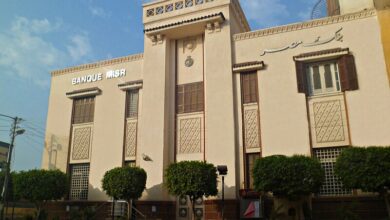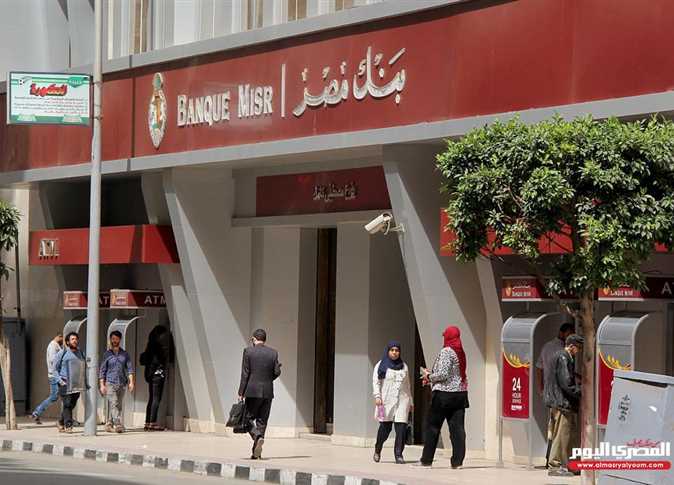Former employees of the closed Amonsito factory have ended their sit-in, following Wednesday’s tentative agreement for overdue early retirement payment to the workers from Banque Misr, the factory’s creditor.
The workers have been occupying the building of the General Trade Union headquarters in downtown Cairo since Sunday. They renewed their sit-in in protest of the government-owned Banque Misr and the General Trade Union’s unwillingness to implement an agreement the two parties had signed with the factory’s union on 21 March, which was meant to resolve due payments to laid off factory workers. The Amonsito factory was closed in March after its owner fled Egypt.
At the Wednesday meeting, the factory union representatives met with officials at Banque Misr to renew negotiations about reaching the originally agreed upon amount of LE106 million. The bank agreed to pay LE15 million in addition to a prior promise of LE50 million, totalling LE65 million to be divided up among the complex’s 1700 workers.
The officials also said they would consider the workers’ request to sell the textiles remaining in the factory’s warehouses, which the former employees estimate at a value of LE20 million.
This brings the total payouts to LE85 million out of LE106 million that was agreed upon during the March meeting. Still, until today the bank has yet to pay any of the money it committed. Meanwhile, laid off workers have been enduring the economic hardships of being jobless.
Abdel-Wahab Saber, 43, has worked in Amonsito since 1992. This month, he had to borrow LE13,000 for medical treatment for a stroke which left him without full control of his right arm. His uncle, Musaab Saber, also a former employee of the Amonsito plant, said, “We are like a tree and each of us is a leaf. It is as if we are dying leaf by leaf.” The unemployed worker went on, “We don’t understand what the issue is,” speaking of the bank’s delay in paying the amount they agreed to in March.
“This is a cake of 17 layers, do they have to take all 17 layers?” Saber asked. “They can’t at least leave us the crumbs at the bottom?”
“Initially, we were demanding that the factory be re-opened,” factory union member Essam Abdel Hamid told Al-Masry Al-Youm. Only since a government-assigned committee deemed the factory dysfunctional did the workers start demanding early retirement payments.
Abdel Hamid and union leader Khaled el-Shishawy expressed doubts about the credibility of the bank committee that assessed the 55-acre factory complex in March. The committee entered only two of the complex’s nine factories and, because the electric power had been cut to the plant, they were not able to properly see the machinery. After this cursory assessment, the bank committee quickly deemed the Amonsito complex unworthy of running again.
Shortly after that committee decision, the workers signed the agreement for early retirement, which Egyptian workers often refer to as “early death.”
Currently, the government has not stated what it will do with the empty factory.




